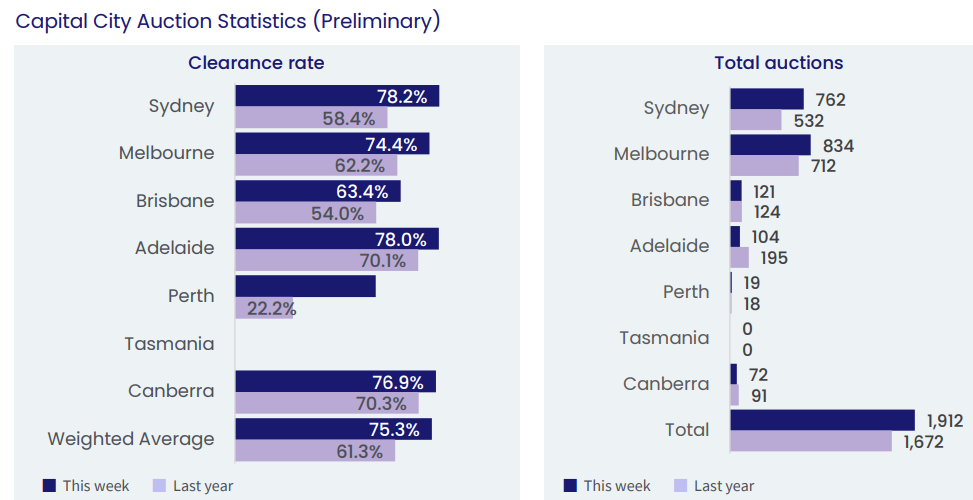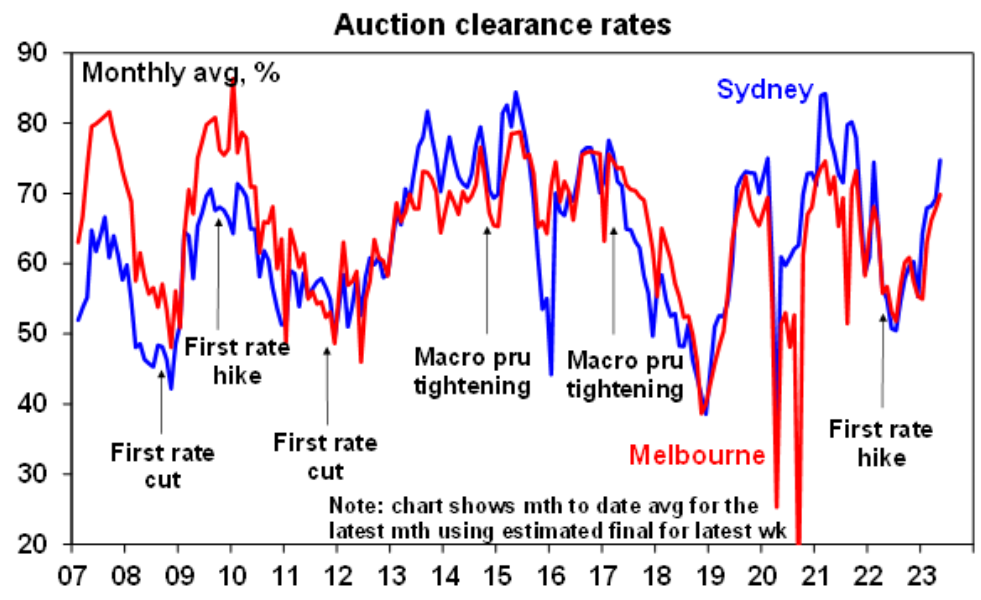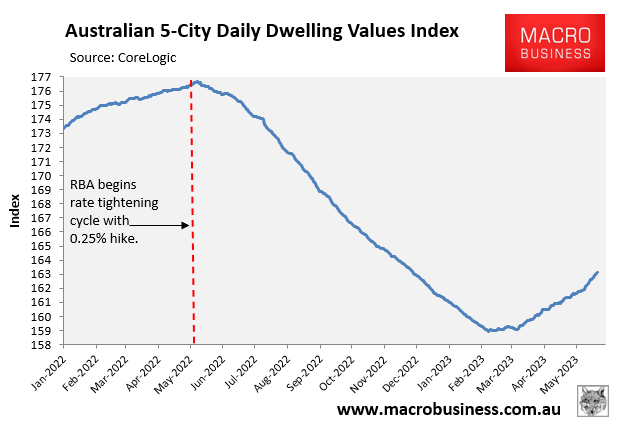This weekend, CoreLogic’s preliminary auction results came in hot once again, with 75.3% of reported auctions clearing across the combined capital cities.
This up 0.9% from the previous weekend’s 74.4% preliminary clearance rate (revised to 70.7% at final figures).
It was also the third week in a row that the preliminary clearance rate remained above 70%:

Source: CoreLogic
Sydney and Melbourne continued to lead the way, with 78.2% and 74.4% of preliminary auction results successful.
Auction volumes were also stronger, up 14% from the same weekend last year.
Domain’s preliminary auction results were similarly strong, with 79% of auctions clearing in Sydney and 74% across Melbourne:

Source: Shane Oliver (AMP Capital)
Meanwhile, CoreLogic’s daily dwelling values index continues to rebound in the face of ongoing monetary tightening from the Reserve Bank of Australia (RBA).
Across the five major capital cities, dwelling values have risen by 2.6% from their 7 February 2023 low, despite three 0.25% interest rate hikes from the RBA in February, March and May:

The strong rebound in Australia’s housing market would be causing angst within the RBA.
One of the main reasons why house prices are rising despite higher interest rates is because of record immigration-driven population growth.
This unprecedented population surge has driven an acute shortage of homes to rent and buy, pushing rents higher, and creating a sense of FOMO (Fear of Missing Out) in the market.
Rents are the second largest contributor to the consumer price index.
Thereby, soaring rents are directly helping to drive up Australia’s inflation.
Rising home values are also typically accompanied by a lift in consumer sentiment, which supports consumption and could potentially keep inflation higher for longer.
Despite the obvious weakening in the labour market, there is a risk that the RBA could hike rates further to counteract the inflationary pressures arising from the housing market, which has been caused by the Albanese Government’s extreme immigration.

